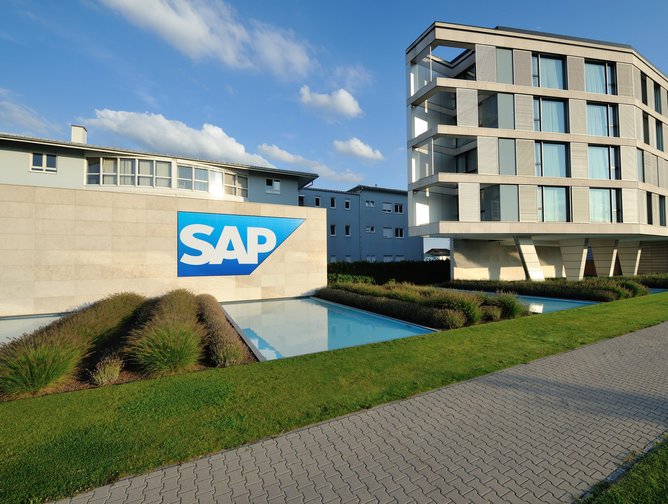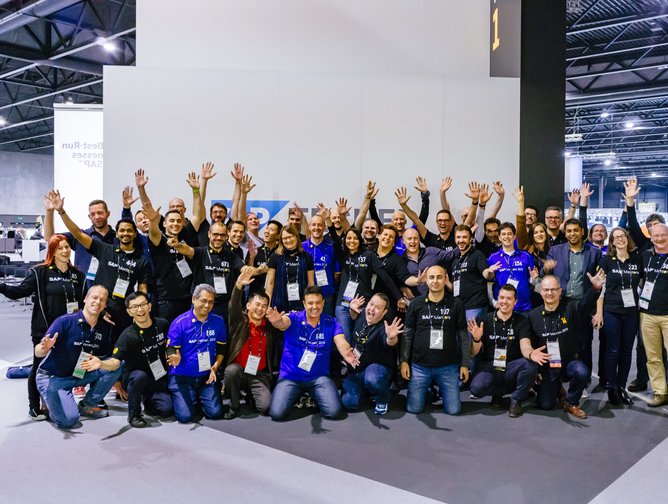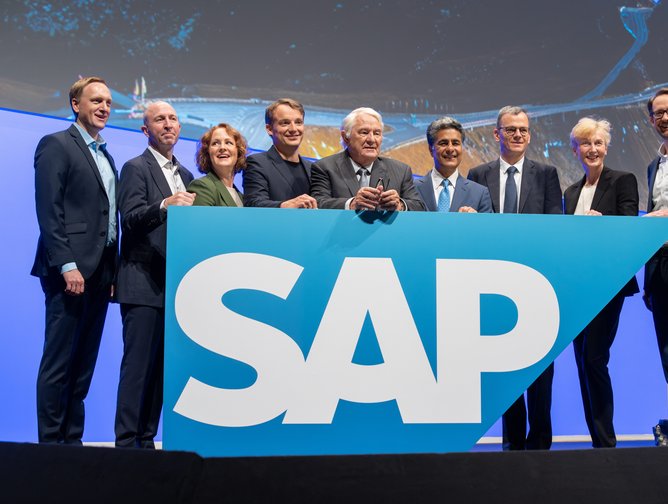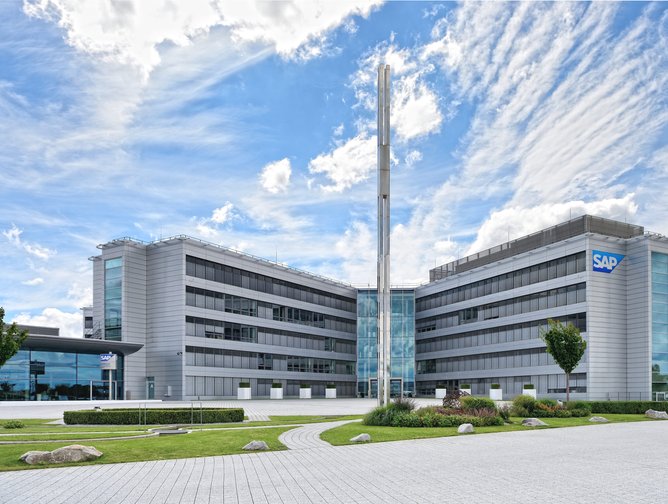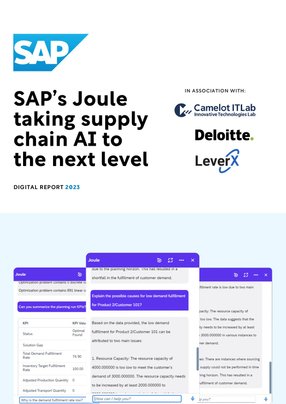In launching Joule – SAP’s natural-language, generative AI ‘co-pilot’ – SAP CEO Christian Klein spelled out how it has the power to redefine both the way businesses and people work. “Joule will know what you mean, not just what you say,” Klein told the world.
Joule will be embedded throughout SAP’s cloud enterprise portfolio, and is aimed at the estimated 300 million enterprise users around the world who work with SAP cloud solutions. It is built to deliver proactive and contextualised insight from across the breadth and depth of SAP solutions and third-party sources – and one area in particular is set to reap huge benefits from it: supply chain.
Darcy MacClaren, Chief Revenue Officer for SAP Digital Supply Chain, says
“AI has the potential to revolutionise supply chain management because it's going to enable better decision-making, improved efficiency, reduced costs and meaningful sustainability initiatives. As AI becomes more accessible, we will see increased adoption and integration of it across supply chain operations. It's a game changer.”
Joule, says MacClaren, is based on an understanding of a customer’s processes, and is able to provide the customer not only with intelligent insight, but can also make recommendations designed to deliver outcomes faster.
“This capability is now available across the SAP portfolio, and it's going to be incredibly important to supply chains,” she says. “You can interrogate Joule. You can ask questions such as, ‘Were there any issues in my last supply planning run?’ Joule will then let you know what's going on in your planning cycles, and what you need to do about it. It will make suggestions by comparing different planning runs.”
SAP ‘will become largest AI enterprise bar none’
Because it is embedded across its solutions, MacClaren says Joule “is set to make SAP “the largest AI enterprise out there, bar none”.
“Supply chain is the key area where folks are using AI for,” she adds. “Joule can contextualise data from multiple systems. This results in insights that “help people get work done faster and drive better business outcomes in a secure, compliant way”.
“Think of well-known consumer apps that have AI embedded, such as Siri, Uber and Microsoft Office,” says MacClaren. “We have that now in SAP. Our mission is to enable and accelerate the adoption of AI to create business value. It's infused in the business process, and that's what SAP's business AI is. It's an integrated feature.
“We are also exposing business AI to extend services through our business technology platform.”
MacClaren is in no doubt that Joule – and SAP’s wider business AI offerings – are milestone events for supply chain, a discipline in which she has been involved for more than 25 years.
She joined SAP 12 years ago. Unlike many in the supply chain, MacClaren has an economics rather than engineering background, and also gained an MBA early in her career when she was with Hewlett-Packard, where she worked in the manufacturing technology space.
At SAP, MacClaren is responsible for the go-to market for SAP’s digital supply chain solution set. “It’s what we call ‘design to operate’”, she says. “It's basically everything from how a company designs its products to how it plans, schedules, manufactures, delivers and operates.”
Making supply chains resilient ‘is our goal’
She and her team are responsible for working with SAP customers to help transform their supply chains to be resilient, risk proof, and agile.
“We’re the point of contact between SAP and our audience,” she says, adding: “As Chief Revenue Officer, I am on the customer side of things. But there is also a solution and marketing aspect to what we do, and we’re also involved with engineering product development. We work together to determine the go-to market for the supply chain at SAP globally.”
Throughout her career, MacClaren has developed deep experience in building and scaling niche supply chain companies.
She started out with a planning and scheduling company, whose solutions “now reside at Oracle”, and has also worked across most of the ‘design-to-operate’ pillars, including planning, transportation, and design.
MacClaren finds the potential of Joule “exciting and inspiring”, and feels the same way about supply chain in general.
“From the beginning, I just loved supply chain,” she says. “I loved the mathematical complexity of it, and I loved how it could be optimised and the strategic decisions that are made. It made me realise how powerful and important the supply chain is in any business.”
At SAP, MacClaren is on a self-declared mission to work with customers to transform their supply chain – something she sees as a global imperative. “Supply chain always was very important,” she says, “but the pandemic brought it to the forefront of people’s thinking, both at boardroom and government level”.
Continuing with this theme, MacClaren points out that Joule’s release comes at a time when the stock of supply chain executives has never been higher – their influence at board level never stronger.
“CEOs are now being recruited from the supply chain side of the business because supply chain execs understand the entire organisation and what runs it,” she says. “A study we did recently with Oxford Economics showed how important it is in today’s world for businesses to make supply chain the heart of any business strategy, because of the seemingly never-ending run of disruptions. It must never be an afterthought.”
With Joule now turbo-charging SAP’s solutions, senior supply chain executives are set to bring a greater degree of insight and control to the boardroom.
SAP solutions have AI and ML at their core
MacClaren reminds us that SAP’s solutions have for some time been built on AI and have offered machine learning capabilities.
“If you look at our warehouse management solutions, we use AI for intelligence slotting,” she says. “This optimises warehouses through stock replenishment, based on product characteristics, product demand and sales forecasts.”
She adds: “Then if you look at generative AI in transportation, it examines goods received and delivery notes, and optimises which loads you should unload first. So it's quite powerful.
“Demand planning customers, meanwhile, are using market data promotion, weather calendars, and tens of thousands of data points with machine learning to create forecasts by country, which makes it far more efficient.”
Of course, SAP does not work in a vacuum, but within a collaborative ecosystem far greater than the sum of its parts. One key SAP collaborative partner is Deloitte, who
recently expanded its deployment of SAP Business Technology Platform, an open cloud solution with data management, analytics, AI, IoT, blockchain and application development services to help connect companies.
Deloitte has also expanded its SAP RISE deployment so companies can access innovation across their supply chain. SAP RISE is a complete offering of cloud solutions, infrastructure and services that helps businesses migrate SAP ERP. Deloitte now has RISE Premium Supplier designation, which increases the breadth of the SAP cloud services that the company is able to bring to its clients.
“We have a deep commitment to working closely with SAP to empower supply chain transformation in pursuit of business agility and resilience,” a Deloitte spokesperson says. “We look forward to continuing to support our joint clients through the waves of industry change, with SAP as a prized collaborator.”
She points out that Joule takes the power of SAP’s solutions to another level. Echoing Klein’s line about Joule “knowing what you mean, not just what you say”, MacClaren says that Joule means AI “is no longer just a sandbox pilot but the beating heart of your business”.
SAP partner – IT implementation specialist, LeverX – also lauds the power of Joule, with company Chairman and Co-founder Victor Lozinski saying that Joule “provides new-found capabilities that enable SAP customers to improve the decision-making process, accelerate problem resolution, and determine the sustainability quotient of their delivery operations”.
`He adds: “The world of logistics faces several hurdles throughout the delivery process, impacting efficiency, transparency, and overall costs.
“The growing and dynamic power of AI can address these challenges and bring to life groundbreaking solutions that revolutionise the entire supply chain landscape. By leveraging SAP Digital Supply Chain, companies can orchestrate and monitor all delivery cycles in real-time.”
Another SAP partner to welcome the introduction of Joule is Camelot ITLab, a leading SAP consultancy for digital supply chain management.
A Camelot ITLab spokesperson said: “The impact of AI in supply chain is not limited to a specific function, but offers transformative benefits across the entire design-to-operate process.
“With its generative AI application Joule, SAP will dramatically change how businesses run, and it marks a new era of transformation and innovation. Joule will be a game changer for SAP’s Digital Supply Chain customers.”
But of course, many businesses currently have no access to all this game-changing AI power, because they are behind the technological curve – marooned in a world of siloed data and offline spreadsheet analysis.
For MacClaren and her team, guiding such business through their transformation journeys is central to what they do.
“Like many areas of business, supply chain practitioners are very comfortable with Excel, which they use for offline data manipulation,” says MacClaren. “This is why SAP uses Excel-like interfaces, the big difference of course being that our solutions are dealing with live data accessible in the cloud when the business user needs to make game-time decisions.”
She adds that as well as weaning supply chain folk off Excel, SAP solutions help them move away from departmental silos, to be more collaborative – both within their own organisation and externally.
“If you are a demand planner, you need to be communicating with supply planning,” says MacClaren. “Design needs to be communicating with manufacturing, which needs to communicate with logistics – and they all need to be communicating with one another as part of a digital thread.”
Disparate technologies can affect data quality
As for the many businesses that have already embarked on transformation, they too face barriers to progress.
“A business must constantly be working on its data,” she says. “It's a journey, not a destination, and the more a company uses disparate technologies the more important it is that it keeps that data clean.”
One of the most important things SAP helps its clients with, says MacClaren, is clean data.
“Look, data is never going to be 100% clean but you have to start the journey of cleaning it as soon as possible, and of course we have a lot of machine learning tools to help here.”
Whatever stage a business is at on its transformation journey, MacClaren says her team’s aim is the same: “We want to delight the end consumer, and do it in a sustainable and cost-effective way.
“We have a strong sense of ownership and responsibility in helping companies do that, and we take it very seriously. That's what I really enjoy about it. The impact supply chain has across society, globally.
“When you add our existing capability to natural-language AI it is going to be truly transformational.
“SAP has always been positioned between technology and business, and we're now applying that to our long standing customers to really seize the opportunity of AI.
